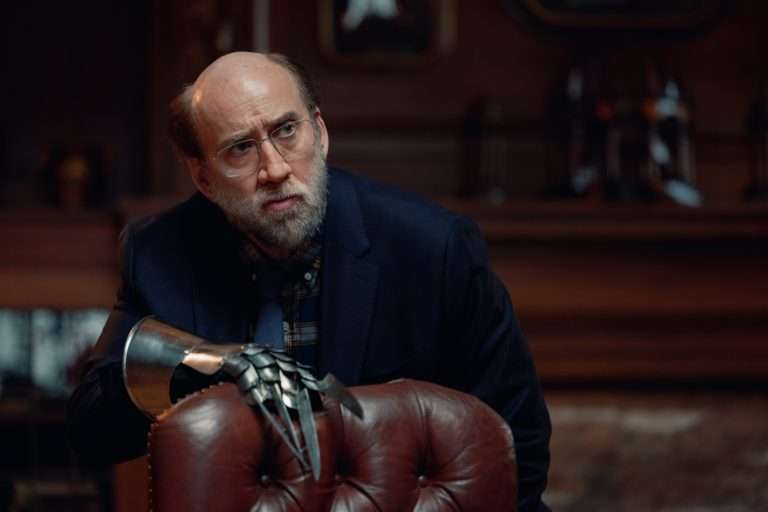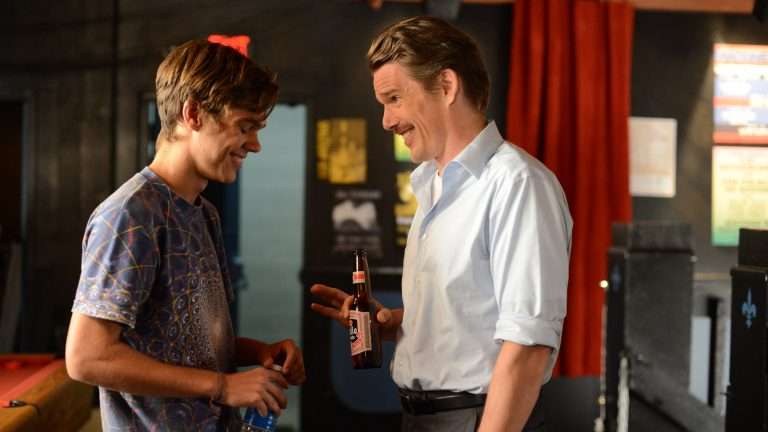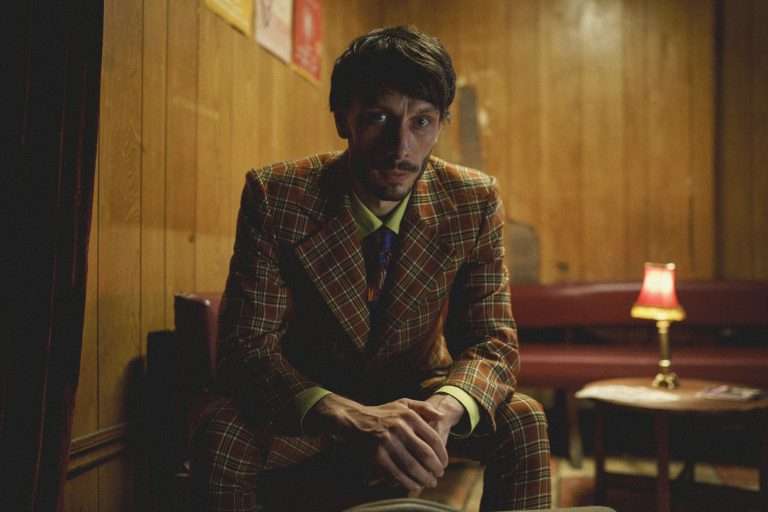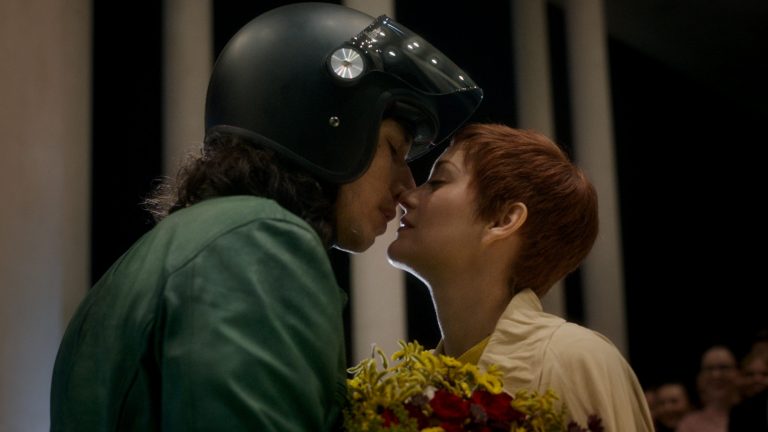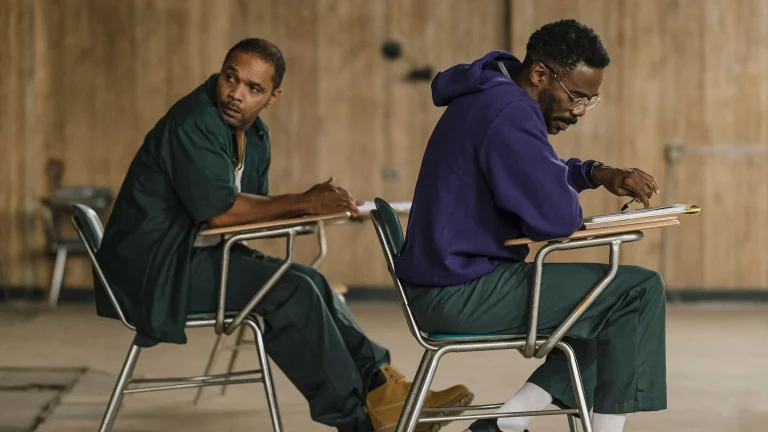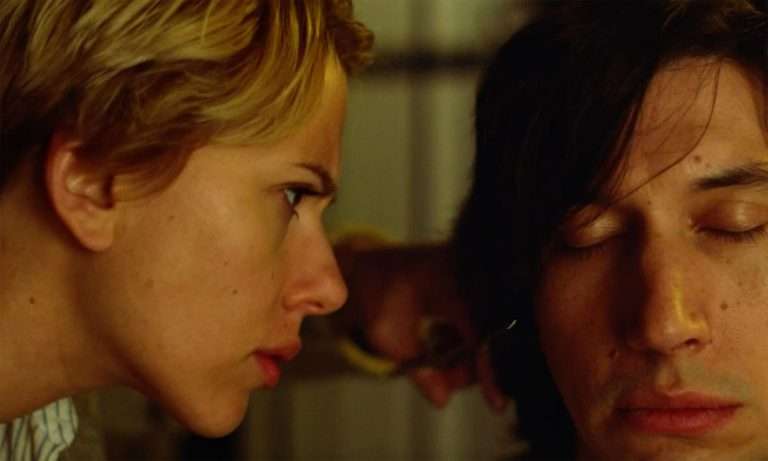In an interview with a magazine, Jake Gyllenhaal, who starred opposite Heath Ledger in Ang Lee’s groundbreaking film Brokeback Mountain, said that the late actor refused to present at the 2007 Academy Awards over a joke involving their characters’ romantic relationship.
“I mean, I remember they wanted to do an opening for the Academy Awards that year that was sort of joking about it,” Gyllenhaal, 43, recalled. “And Heath refused,” he explained. “I was sort of at the time, ‘Oh, okay… whatever.’ I’m always like, ‘It’s all in good fun.’ And Heath said, ‘It’s not a joke to me – I don’t want to make any jokes about it.’ ” The actor added, “That’s the thing I loved about Heath. He would never joke. Someone wanted to make a joke about the story or whatever, he was like, ‘No. This is about love. Like, that’s it, man. Like, no.’ ”
Also, Read: 10 Best Films of Federico Fellini
This is but a small anecdote to one of the greatest actors of the generation, who passed away 16 years ago at the prime age of 28, leaving behind a rich body of work countless actors would try to achieve. In all his performances, there is an effortless ease in embodying a character that somehow rings compelling and true. Here are his feature film performances, ranked.
19. As the “Orphan Clown” in Clowning Around (1992)
The Dark Knight’s Joker is, and always will be, the role that defines Heath Ledger and the one that audiences remember the actor for. What audience don’t realize, however, is that Ledger didn’t just finish up as a clown, but started out as one as well.
His first ever acting role came in the 1992 film Clowning Around. Not really a debut, as this brief role was not even credited in the final roll of the movie, here Ledger played an orphan clown who comes in the final 10 minutes of the film.
18. As “Toby” in Blackrock (1997)
Blackrock marked the debut of Heath Ledger in his first acting role, at the age of 18. Adapted by Lorenzo’s Oil scripter Nick Enright from his own play, which in turn was inspired by the rape and murder of an adolescent girl in the coastal Oz city of Newcastle, here Ledger played Toby, who becomes embroiled in the rape of one of the girls in a party, in a rather disturbing coming of age film.
One of the shortcomings of the film was an inconsistent connection with the actors, many of whom appear a little self-conscious. The main exception is still newcomer Heath Ledger, who with the brief amount of his screen time in the film manages to stay after the credits roll, a testament to his yet unhoned capability as an actor. His role was short, but significant in the fact that his next role was his American film debut.
17. As “Oberon” in Paws (1997)
Ledger also starred in Karl Zwicky’s Paws, which was a modest and unassuming Australian children’s film. It was most certainly designed and constructed to emulate the success of the same country’s international runaway hit Babe (1995), made only a couple of years earlier.
It is made with a likeably bubbly frothiness, one that carries a slight concept further than it extends through sheer energy and good-naturedness. In Paws, Heath Ledger played a student who was portraying the character of Oberon in Shakespeare’s A Midsummer Night’s Dream. In his brief presence, Ledger was shy but never diminutive, giving a fine performance.
16. As “Gabriel Martin” in The Patriot (2000)
Set during the American Revolutionary War, The Patriot was Ledger’s introduction to big budget American films. In this particularly forgettable film, Ledger was saddled with the role of playing Mel Gibson’s son who despite his own wishes enlists in the Army and is eventually killed. While the movie was heavily criticized for being widely inaccurate in terms of its historical story, it is nonetheless gripping and emotional and at the heart of it all is Ledger as Gabriel Martin and his relationship with his father Benjamin Martin played by Mel Gibson.
Also by Mel Gibson: Hacksaw Ridge (2016): The Hero of War
Although Ledger was paired beside Mel Gibson who had the meatier, more central role, Heath Ledger still gave a sincere turn as the doomed heir, infusing a needed sense of tragic in the narrative. Even after all the skill showed by Ledger, it couldn’t save the otherwise film marred with its own narrative grandeur.
15. As “Jimmy” in Two Hands (1999)
Two Hands was an important film in Ledger’s filmography from a career-building and star-grooming point of view, where writer and director Gregor Jordan’s offbeat crime caper gave Ledger a much needed breakthrough. Ledger was picked up by Creative Artists Agency slated for his first international feature when he returned to Australia to film Two Hands, playing a tough street kid named Jimmy who gets a job delivering $ 10,000 for a gangster named Pando.
When the money is stolen, he gets into the chase. Ledger’s performance as the decent, unsophisticated bloke who is in way over his head was particularly striking and earned him a Supporting Actor nomination at the Australian Film Institute Awards, bringing the actor a much needed attention.
14. As “Alex Bernier” in The Order (2003)
Teaming again with director Brian Helgeland in a murder mystery The Order, Ledger plays a member of an arcane order of priests known as Carolingians. When the head of the order dies, Ledger is sent to Rome to investigate mysterious circumstances surrounding it. Ledger was particularly fond of the character he played and had said in an interview how, “If I’m portraying someone different, it keeps it exciting for me. It really bugs me when I get a role and the director says, “Put a wig on him and give him blonde hair.’ The thing is that I’m a pretty lazy kind of person — very lazy, actually — and if I don’t enjoy or appreciate what I’m doing and if it doesn’t inspire me deep in my intestines, then I’ll do a bad job and get bored and walk.”
The film’s released was delayed and it received overwhelmingly poor reviews. Heath Ledger was the only saving grace in the hackneyed script and half-baked direction, giving an uncanny performance to say the least, a tad bit hurried in its approach, but certainly worthy of note.
13. As “Ned Kelly” in Ned Kelly (2003)
Gregor Jordan said in an interview that he casted Ledger as Ned Kelly because, “I didn’t think there was anyone else who could play the role, because he had to be the right age, he had to be the right physical size, he had to have enough star power to command the budget, but also he had to be an Australian. So, you know, when you put all that criteria together, it’s only Heath.” Ledger played a prominent figure in Australian History this time, in a film that was so self aware of itself that it turned out to be a huge misstep for the actor, with everything about the entire subject coming off as indulgent and restless.
Related: Best Films of The Australian New Wave
Judging by the iconoclastic nature of the Ned Kelly legend, it would be difficult for any actor to live up to the myth. Adequate performances are ultimately overshadowed by the air of importance firmly imprinted on the Kelly legend. Ledger’s sincere approach couldn’t save the film that lacked creative grit and never rose above its stock western stereotypes, proving to be a less satisfying period in the actor’s career where he had to struggle to live up to his early promise.
12. As “Casanova” in Casanova (2005)
Casanova released in the same year as another film that starred Ledger, Brokeback Mountain, a huge contrast noteworthy of attention. Ledger played the legendary seducer Casanova, a master of disguise, who went under many alter egos to gain the object of his desire. However, these objects just so happened to be the entire female population of Venice. Nobody was immune to his charms, whether it be stealing the virtues of supposedly sworn oath nuns to the Cardinal’s mistress. While he does meet his match, when for the first time ever a young Venetian beauty, Francesca (Sienna Millar), did what no woman had dared, refused his advances.
By accepting the challenge, Casanova risks his life, his reputation and his chance to find true love. Ledger was perfectly cast- His charismatic and charming act elevated the simple fact that he had the looks and wit to be appealing to fit into the character’s shoes. Heath Ledger lifted an otherwise uneven film with an effortless charm, playing the famed lady’s man and lover by the hooks. Hallstrom’s film was busy and unfocused, giving us the view of Casanova’s ceaseless activity but not the excitement.
11. As “Harry Feversham” in The Four Feathers (2002)
Ledger starred in this war drama directed by Sekhar Kapur, as Harry Faversham, a young British soldier whose fear of battle causes him to resign his army post, and is further accused of cowardice. After receiving four feathers (a sign of cowardice) from his three closest friends and his patriotic girlfriend (played by Kate Hudson), Harry ventures to Africa, after all, and fights to regain his honor, aided by local farmer Abou Fatma (”Amistad”’s Djimon Hounsou).
The film turned out to be a box office disaster, and although Ledger tried to redeem it with a controlled turn as a British Army Officer he couldn’t save the glaring lack of direction coupled with the lacklustre screenplay in a hugely ambitious yet carelessly made film dealing with patriotism and individual idealism. Ledger was the only saving grace of the film, rising above its material.
10. As “Jacob Grimm” in The Brother’s Grimm (2005)
Ledger teamed up with Terry Gilliam yet again, and turned in a surprisingly unusual performance, with the quiet, bookish charm of Jacob vastly different to the brooding intensity he brought in majority of his performances. Cast opposite Matt Damon, Ledger infused a lot of charm into an otherwise bland film set in 1811, where the romantic scholar Jacob Grimm (Heath Ledger) and his more cynical brother Will (Matt Damon) travel through Germany as con artists, staging supernatural hauntings, which they then dispel in return for money and celebrity.
General Delatombe (Jonathan Pryce), leader of the French occupying forces, has the brothers arrested, but offers them amnesty on condition that they unmask whoever is responsible for a series of child abductions in backwoods Marbaden. At one point Will declares to Angelika: “Nothing makes sense here; it’s like being in Jacob’s head.” Sure enough, where other biopics claim to be based on a true story, The Brothers Grimm is a pastiche of the brothers’ own fairytales, with a similar blend of supernatural surrealism and macabre terror. Skewing our perception of the characters are their portrayals, particularly Ledger who emphasizes physical humor in the role of the bumbling, dorky brother.
9. As “Tony” in The Imaginarium of Doctor Parnassus (2009)
Johnny Depp, Steve Carell and Jude Law would replace Ledger, who died from an accidental prescripted drug overdose on January 22 while the filming was left to be completed. The last film that featured Ledger would release a year after his death, but nevertheless Ledger gives a significantly strong performance within the screentime he is provided, making an otherwise unaccessible film somehow manageable.
The story loosely revolves around an aging, Vaudeville-style impresario/swami named Doctor Parnassus (played by Christopher Plummer) and his daughter Valentina (Lily Cole). From the stage of the Imaginarium wagon, they offer audience members the opportunity to travel through a magic mirror. But even as the film celebrates the thrills of a rich fantasy life, The Imaginarium of Doctor Parnassus raises an unanswerable question: What would we be seeing if Ledger had lived to give a fully realized performance?
8. As “Skip” in Lords of Dogtown (2005)
This biographical drama film was set in 1970s Venice, California (in an area referred to as “Dogtown”), where a bunch of beam bums turn from surfing at the rundown Pacific Ocean Pier to competition skateboarding for Zephyrs surf shop. Revolving around skateboarders that had Tony Alva, Stacy Peralta and Jay Adams, Heath Ledger played a perpetually drunk surf shop owner Skip Engblom in the film.
Related to Heath Ledger: I Am Heath Ledger: Portrait of a Fallen Artist
As the story unfolds, two seemingly disparate events are ready to revolutionize skateboarding: the invention of the urethane wheel and a persistent drought in Southern California. There’s a sense that more than half of the narrative was either left on the cutting room floor or never filmed. What’s left is less a cohesive story than a series of episodes to propel the characters from point A to point B – and the destination doesn’t impress. Ledger, in turn is flamboyantly real and gives a faultless performance, at once visceral and charming, funny and real, giving the film an added sense of depth and structure.
7. As “Dan” in Candy (2006)
Candy might just be the most overlooked film in Ledger’s filmography. Candy (Abbie Cornish) and Dan (Heath Ledger) are, respectively, an aspiring artist and a would-be poet whose love is matched only by each other’s desire to take heroin. Initially this joint addiction strengthens the couples’ bond, but as things get out of control tough choices must be made. Here, he played the heroin-addicted poet who falls in love with Candy played by Abbie Cornish, and battles addiction.
Heath Ledger owned the film, that was otherwise a difficult watch, and made it particularly striking and compelling. The currency of this film resonated in its compassion and insight, and the filmmakers’ gentle approach to the material. It possesses a clarity about the human condition, so predisposed towards destruction and resurrection, that many films on this turf do not exhibit, more’s the pity.
6. As “William Thatcher” in A Knight’s Tale (2001)
A Knight’s Tale was an odd film in many ways, with its treatment of medieval characters coming off as surprsingly uncanny. Writer and director Brian Helgeland has taken the familiar elements of knighthood tales of adventure and given them some rowdy and refreshing new twists. William Thatcher, a young adult, is pretending to be a knight by the name of Sir Ulrich von Lienchtenstein. As the title suggests, this story is quite literally his. We, the audience, are brought along on a journey that deals with his dream to become a Knight. This new identity allows this man to be able to participate in tournaments that include jousting, sword play, and more.
In one of these scenes, William learns that his opponent is none other than the Prince of Wales. While most competitors would turn away from fighting such royalty, William decides that the title of someone will not have an affect on him. This gives way to a turning point in the movie and allows the other characters to have insight on the type of person he truly is. Heath Ledger as Willam Thatcher played the swasbuckling character with an effortless appeal that paved the way for his breakout roles in the future. His performance was at once funny and raw, layered and graceful, and catapaulted Ledger as one of the actors to look out for.
5. As “Patrick Verona” in 10 Things I Hate About You (1999)
The third film in Ledger’s career, this performance inarguably propelled the actor’s career to portray calibrated roles into an extraordinary fashion, truly launching him as an actor to be reckoned with. This modern retelling of William Shakespeare’s The Taming of the Shrew is set in an upper-middle class Seattle high school. When the sweet Bianca Stratford decides she wants to start dating, her paranoid father establishes a rule that she can date when her slightly older sister, Kat—an angst-ridden harpy who alienates everyone around her—gets a boyfriend of her own.
Two guys want to take Bianca to the prom so they hatch a plot to persuade Patrick (Heath Ledger), the school outlaw, to ask her to the prom. He takes a $300 bribe, but then realizes that Kat is actually quite lovely, etc., and really falls in love with her. Modernising Petruchio as a too-cool-for-school rebel, he’s effortlessly watchable. That all takes a back-seat, however, to his rendition of Can’t Take My Eyes Off You. Totally in the spirit of John Hughes and played with swagger and a hint of earnest it’s the film’s standout scene and signalled to the world that Heath Ledger had arrived. It is a charming performance, and although the character of Patrick is saddled with questionable actions, Ledger makes him blissfully appealing and unforgettable.
4. As “Sonny Grotowski” in Monsters Ball (2001)
While Halle Berry and Billy Bob Thornton are cited to make this film memorable, Ledger – once again in a supporting role – provided a quiet, wrenching performance in the first half of the film. The troubled father-son relationship that the film explored between Ledger’s Sonny and Thornton’s Hank provided an unsettling look, with Ledger turning in a truly heartbreaking performance within the limited space his character was provided in the film. Things get physical between the two, Thorton said in an interview on his past performances, he revealed some insights on that intense moment. “That scene right there, I waswas really hitting Heath,” Thornton says. “And he asked me to. I said, ‘Now listen, I’m a little more of a veteran than you. When I was a young actor I used to ask people to hit me and it hurts.’ I said, ‘I’ll do it if you want me to,’ and he said, ‘Please.’ He said he needed it. And I was hitting him pretty hard.”
Ledger was particularly convincing as the gentle and compassionate son who had the one thing his father lacked — love. Daniel Day Lewis said in his Best Actor in a Leading Role acceptance speech at SAG awards how, “that character that he created, it seemed to be almost like an unformed being, retreating from themselves, retreating from his father, from his life, even retreating from us, and yet we wanted to follow him, and yet we’re scared to follow him almost. It was unique.”
3. As “Robbie” in I’m Not There (2007)
Although Cate Blanchett walked away with all the major attention in this ambitious film by Todd Haynes chronicling the life of Bob Dylan, Ledger was hard to pin down. He played Robbie Clark, the actor who played Dylan in the late 70s and became almost as famous as the singer himself.
Also by Todd Haynes: Carol (2015): Flawless Film About Troubled Souls
Ledger said in an interview how it was never going to be easy to take on a role that comes with certain expectations from the audience. “When you are playing these kinds of parts, you can underprepare or you can overprepare, but it is all just to feed our superstitious needs and to comfort ourselves. I was a fan of Dylan, but he was someone who I had scheduled somewhere down the line to be obsessed with because I do get obsessed with musicians and artists.” Ledger’s performance is particularly memorable and once again showed how the actor defied type-casting by taking up audacious and unconventional films, armed with the uncanny ability to morph into the character completely.
2. As “Ennis Del Mar” in Brokeback Mountain (2005)
Ledger’s turn as Ennis Del Mar in Ang Lee’s groundbreaking Brockback Mountain that earned him his first Academy Award Nomination. Emotionally raw and controlled, Ledger owned the character and gave it a piercing sense of fragility and depth. Del Marr falls in love with Jake Gyllenhaal’s Jack Twist, during one summer but both of them move on to marry their respective girlfriends, unable to do anything with their love in a society that denies that passion. Lee revealed how he was not sure if Ledger could carry the film. He ended up hiring him based on his work in Monster’s Ball, in which he plays a corrections officer opposite Billy Bob Thornton.
Similar: Portrait of a Lady on Fire (2019)
Lee adds that Ledger is the only actor he has ever allowed to look at the monitor after takes. Rather than making him overly self-aware, as Lee feared such self-observation might, Ledger used the process to reflect on his performance and make it even better in the further takes. Brokeback Mountain won unanimous acclaim and Lee won the Best Director Oscar for his work. It remains profound because it is about what is unspoken and what isn’t seen. The same can be said about Ledger’s performance- charting the growth of the character from self-loathing to the struggle for articulation to the years of repressed turmoil, he was truly unforgettable.
1. As “Joker” in The Dark Knight (2008)
When it was announced that Ledger would take on the iconic role of the Joker, there was an immediate backlash regarding the casting decision. Shattering all these criticisms, Ledger turned out one of the best performances in cinema history. The interrogation sequence where he faces Batman is memorable for the way in which Ledger’s Joker reveals his intentions behind his actions. With incredible ferocity, Ledger was able to unspool the pyschology that earned him the Academy Award for Best Supporting Actor posthumously.
Related to Heath Ledger: Every Christopher Nolan Film Ranked
In an interview Nolan looked back at the legacy of Ledger and how ‘terrifying’ he was as Joker. He said how ” (Ledger) would sort of give me hints about what he was going to do. We would talk about it a bit. And I would try and be an audience for him and sort of engage with him, what he was doing. But a lot of it was about unpredictability, and I think he wanted to play his cards close to the chest. He would very gradually reveal to me the ‘voice’ and the way he was going to do things – but not in one go, like, ‘Here’s the Joker.’ His voice was so unpredictable. He created this bizarre pitch. I’ve seen a lot of people try and imitate it since. But we never quite knew if he was going to go high or if he was going to go low. You never knew what that guy was going to do, and that’s what was terrifying about him.”


